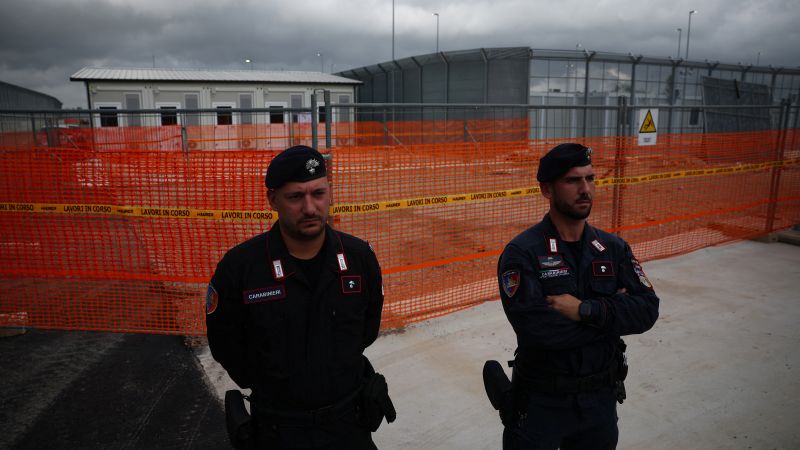European countries aiming to adopt Italy’s controversial approach of sending asylum seekers rescued at sea to offshore deportation centers face a significant setback following a ruling by the European Court of Justice (ECJ). On October 6, 2023, the court determined that while Italy can continue utilizing its centers in the Albanian cities of Shengjin and Gjader, the criteria for sending asylum seekers to these locations must be rigorously evaluated. This ruling emphasizes the need to ensure that individuals are not returned to perilous situations in their home countries.
The ECJ stated that a country of origin can only be classified as “safe” after undergoing “effective judicial review.” Furthermore, it noted that a nation must be demonstrably secure for all its inhabitants, including vulnerable or marginalized groups. This decision is expected to have profound implications for upcoming EU asylum regulations scheduled to take effect in June 2024. These regulations are intended to empower member states to formulate their own lists of “safe” countries to expedite and outsource the asylum process.
The EU’s preliminary list of safe countries includes nations such as Bangladesh, Colombia, Egypt, India, Kosovo, Morocco, and Tunisia. Human rights organizations, including Amnesty International, have raised concerns regarding the safety of these countries, arguing that they are not secure for all residents. In a statement from July, Amnesty International noted that the proposed EU list categorizes countries where fewer than 20% of applicants receive international protection as “safe.” They pointed out that the existence of even a fraction of recognized refugees indicates that these regions are not safe for everyone.
The ruling by the ECJ stemmed from the cases of two Bangladeshi asylum seekers detained in Albania, who contended that returning to their home country would pose risks to their safety. Several European nations had previously expressed interest in establishing similar deportation schemes modeled after the Italian-Albanian partnership. This collaboration involves a multi-million-euro investment in detention centers and “return hubs” in a non-EU nation.
A recent study conducted by the University of Bari revealed that Italy’s offshore scheme has already cost the country over €74.2 million (approximately $86 million). The study described the initiative as “the most costly, inhumane, and useless instrument in the history of Italian migration policies.” Despite this criticism, European Commission President Ursula von der Leyen and former European Council President Charles Michel praised Italy’s landmark agreement established in 2023.
In May 2024, the EU unveiled a series of reforms aimed at refining its approach to migration and asylum, particularly concerning migrants from so-called “safe” countries. This pact, described as “fair but firm,” proposes extensive reforms designed to alleviate the pressure on countries that historically receive the highest number of asylum seekers among the EU’s 27 member states.
The impact of the ECJ ruling on the future development of detention hubs remains uncertain. Following the court’s decision, Italy’s far-right Prime Minister Giorgia Meloni criticized the ruling as myopic, asserting that it undermines efforts to combat illegal immigration and protect national borders. She stated, “This is a development that should concern everyone – including the political forces rejoicing today over the ruling – because it further reduces the already limited scope for governments and parliaments to regulate and administer migration.”
As the situation unfolds, nearly a dozen individuals from countries deemed safe, including Egypt and Bangladesh, currently awaiting their fate in Italy’s detention centers in Albania find themselves in a precarious position, highlighting the complexities surrounding asylum policies in Europe.
